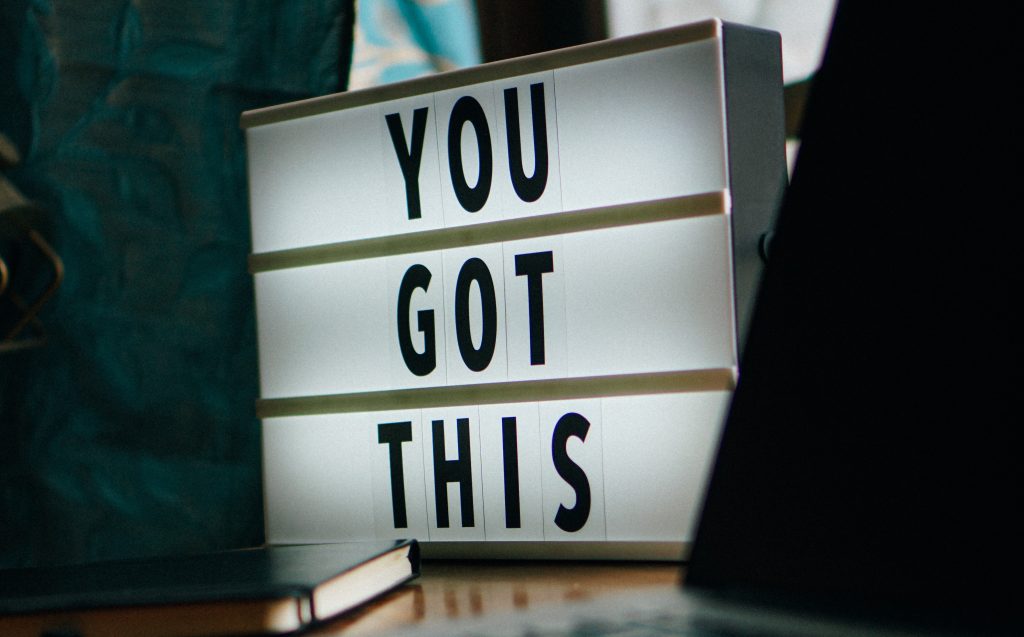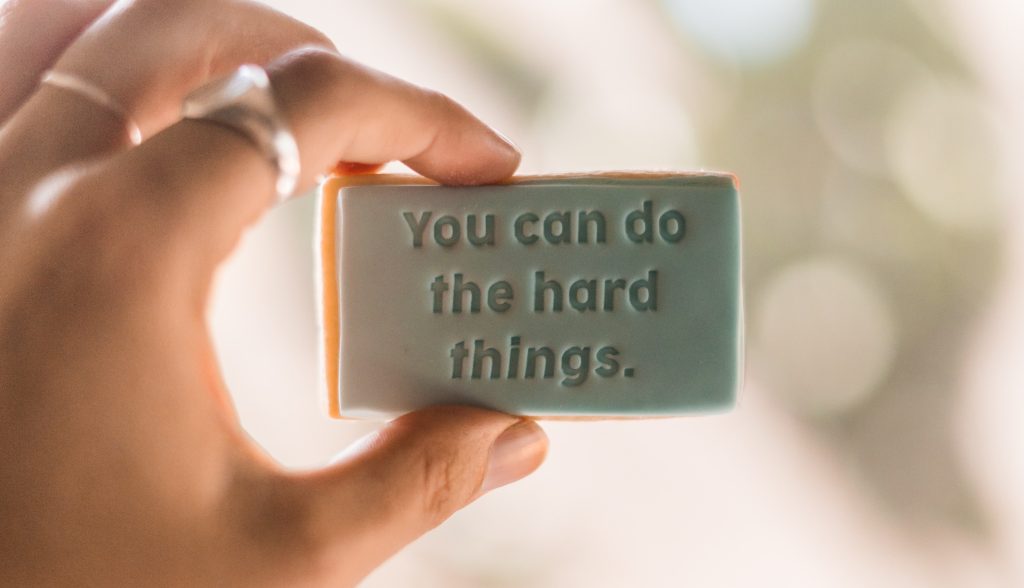Let’s face it – virtually nobody actually likes studying. We would rather do literally anything else. That’s why the time just before exams is when our rooms or houses have never looked tidier. Procrastination takes over, and we find multiple other things to fill our time instead of studying. Sometimes we can even convince ourselves that the tasks we are doing to procrastinate are necessary for us to be able to study – we need a clean desk, organised stationary, etc. And up to a point, being organised and having a clear space is important to be able to study efficiently – however it becomes counterproductive if getting prepared to study takes up more of our time than actually studying.
We also might have anxiety about studying. It can feel like a daunting taks, revising a full year’s worth of material in a short period of time. Maybe we’ve fallen behind a bit, or there was a section we’re really not sure we understood. Or maybe we’re just not sure how on earth we are going to memorise everything. These are understandable worries, and it’s ok to feel that way, but if we focus on just these thoughts, we can become paralysed by them, and end up in an even worse position. Even if you’ve done nothing at all up to this point, there is still time, and there are still things you can do to help yourself.

Below we’ve outlined some tips that might help you find and keep your motivation to study. It’s important to note though that what works best for one person might not work as well for someone else. That’s ok, try a few different options to see what fits best for you and your needs. Most importantly though, if you’re struggling with your thoughts, emotions or your ability to study, ask for help. Your lecturers, tutors, department head, counselling service, disability service, students’ union and even your library might be able to help – but you need to ask early; don’t leave it until the last minute.
When your brain is fighting against you It’s ok to have difficulties with motivation – in fact, most people do at some point. Acknowledge if this is the case for you. Don’t beat yourself up about it; it’s not a reflection of you as a person or your abilities. Try writing down your thoughts about motivation, why you might be struggling, and see if that can help you figure out why you’re having motivation issues. IT might be that you can’t figure out why, or you already know – try writing it all down anyway, it can help get it out of your head, and often, externalising your thoughts and feelings in this way can reduce the power they have over us. When we are stressed and facing into something we don’t want to do, our brains can sometimes lie to us and tell us we aren’t capable of whatever it is we’re avoiding. Most of the time, this is not true. Try not to run away from studying or college work because you’re not motivated – this can cause a viscious cycle of inaction causing you to feel deflated and defeated, which will only further decrease your motivation. This could end up in you feeling completely overwhelmed and paralysed, and can dent your self-esteem. Try to figure out how you work best – there are ways that science suggest is the ‘best’ or most effective way – this usually involves being somewhere quiet, sitting at a desk with adequate light, and work in chunks of 25-45 minutes at maximum with 5 minute breaks in between. However, if that doesn’t work for you, or if that’s not possible for you, that’s ok. Figure out what does work best and run with that. The aim of the game is to just figure out a way to get the revision done, in a way that feels right for you. Do consider what makes it easier for you to study – is there a particular playlist that helps you focus, or is there a particular snack that you like to eat while you work? Tips to get started when you really don't want to Start with your overall to-do list. Let’s say you have 12 chapters of a book to cover. That’s a 12-item to-do list, and that’s really big. Let’s break it down a bit, so we’re going to start with revising chapter 1. That still feel too much? Ok, let’s break it down further – we’re going to re-read the chapter itself and our notes, and check if we need to add anything to our notes? Still too much? No problem – we’re going to read the first five pages of the chapter. Keep following this process until you get to a point where it doesn’t feel too much – even if that point feels silly, like ‘I’m going to take open the book on the first page of chapter 1’ – whatever the smallest first step is to get you started’ that’s what we’re looking for. Within that to-do list, it’s important to prioritise. If that 12-chapter book is for your very last exam, but you have a paper due on a different subject first, consider giving that your priority time. Once you’ve figured out what you’re focusing on, decide how long you are going to spend on this – this could be how long you have to study for the day, or how long you want this particular bit to be. If that feels like too much, set yourself a short target – tell yourself you’re going to read that chapter for 10 minutes, or even 5 minutes. If you feel like you need to stop after that, do; but chances are once you get started you’ll get into a flow and your ability to focus will kick in. forget about everything else you need to do, and focus on this one task. Counter the thoughts about how you don’t want to do this and you’ll never get it all done, by consciously thinking to yourself (or saying out loud if it helps and you’re not in the library) that everything else does not matter right now, this thing is what you’re focusing on. It’s a polite way of telling your brain to shut up because it’s wasting energy on unhelpful thoughts when it could be working towards a solution with you. Keeping going when motivation starts to flag Gamify your studying, or build in rewards – like when we were small and would get gold stars in infant school for handing in our work, having a reward or something to look forward to can help us stay focused. This could include having a nice cuppa, meeting a friend, spending time doing something you enjoy, or some people even make a longer game out of it by doing things like putting a piece of chcoclate at the end of every page, or putting some money in a jar at certain milestones to be spent on a largre reward at the end. This can really help some people because there’s a balance between the studying they don’t want to do, and knowing they can enjoy the reward when it’s done, but it’s important that you don’t become punitive with yourself if you don’t meet your study goals. If you tried, then you shoudn’t punish yourself for not meeting your goals; just reset, consider what went wrong, and try again. If you find yourself having lost focus in the middle of s study session, or that you’re finding yourself reading the same thing multiple times and feeling like it just isn’t going in, take a break. Move away from the books, get some water or fresh air, stretch. Consider your self-care needs – are you over-tired? Do you need to eat? If so, take care of those needs so you can come back refreshed. If those are already taken care of, consider switching topics for the time being, or if you think it’s because you’re struggling with this particular topic then consider reaching out for help. The phrase ‘undivided attention’ is well known, but there is a science behind it. When we try to do multiple things at once, our attention capacity literally has to split itself between those things. You can’t give 100% of your focus to anything more than one thing at a time. As a result, if you are struggling to focus, consider what might be leeching your attention away from the task at hand. Is there a tv on nearby that you might be listening to or watching (even unintentionally)? Are notifications popping up on your phone, or are they not, and are you noticing that? Is your pet looking for attention beside you? It can be hard to reduce distractions completely, but every reduction in distractions you make means more of that percentage of attention can be directed where you need it to go. Still struggling? Additional tips that might help While it is more commonly talked about with regards to people with ADHD, everyone’s brain loves a hit of dopamine – the main hormone related to reward, motivation, and pleasure. It’s what gives us that nice feeling when we feel we’ve done well at something. When we allow ourselves to celebrate a win, we give our brains a little dose of dopamine, and that makes us feel good, and also makes us feel like we can do more. Try to find your small studying wins – did you get out of bed and try to study? It doesn’t matter if you got through your whole task list, if you even completed that first step, give yourself some kudos – it’s way easier to just stay in bed. Did you make a study plan, or check our the library opening times? Congratulate yourself. It might feel silly at the start, but not only does it start that dopamine process rolling, but it also starts to challenge any negative thinking patterns we might be having about how we’re not doing enough. Bit by bit you’ll feel more able, and thus will be more likely to actually try. We can be our own worst enemies at times, and that’s ok – if that’s you, try externalising some things, like accountability. Tell your family you’re going to study; make plans with your friends to go to the library and study. That way you’ll have someoem to check on you, and for some people, feeling guilt, or the potential of guilt if they don’t follow through, can be enough to keep them to their word. For some people this can even extend to body doubling – where two or more people work in each other’s presence because we’re more likely to stay on task rather than be ‘caught’ by the other person procrastinating. Some people use livestreams on social media for this, but you can do it just by agreeing with a friend or family member to do so. Try to reframe your thinking – we’ve mentioned how we can get into negative thought patterns around studying quite easily. We can also change those patterns by consciously focusing on more positive thoughts. That is absolutely not to say that if you are struggling with your mental health that you can ‘positive think’ your way out of it; what it means is that if you are telling yourself that you can’t do this, you will start to believe this. If you focus on what you can do in a given study period rather than what you should do, you will start to believe that you can do it, because you will notice that you are doing it. Lastly, remember that college is meant to be a challenge – if it was easy, everyone would do it. Don’t feel defeated if it doesn’t come easy – challenges are often doable, difficult doesn’t mean impossible. You have managed to succeed thus far. And even if you don’t do as well as you would like to, or feel you need to, that’s ok too – there are things that can be done to get where you want to go. You don’t need to go through this alone, and with support and help, you might surprise yourself at what you can do, even if it’s hard. If you’ve read this, and you’re still struggling to study, reach our for help to your lecturers, tutor, librarian, SU, family and friends, campus counsellor or GP for help. You don’t ever need to struggle on your own. No matter how you feel an individual exam our the overall exam period has gone for you, remember that is not a reflection of who you are as a person. You are important and of value, and no exam or assessment is worth compromising your wellbeing. If you are struggling with your mental health in a way that is impacting your life, please reach out for help. Sources of support are available here.


Recent Comments